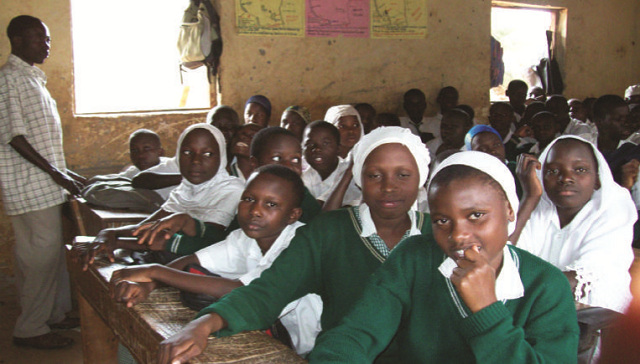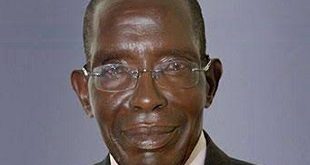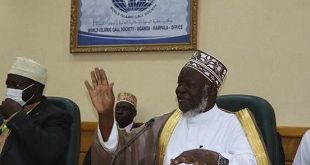
New study shows why it is important to bridge the gap
Ugandan media has devised ways of getting the most out of readers whenever results of national examinations are released. This year, the most innovative was possibly The New Vision newspaper of Jan. 24. Under the rather ambiguous heading; “Decade’s best performing O’level schools”, it compiled the performance of 1778 schools over 15 years from 2000 to 2015.
Perhaps unintentionally, the list fed directly into a raging debate on education perceptions, participation, and performance of members of different religious groups in Uganda.
Top on The New Vision list was Mt. St. Mary’s College Namagunga, a Catholic school. It was followed by Uganda Martyrs SSS Namugongo (Catholic), St.Mary’s SS, Kitende (Private, Catholic), St. Mary’s College, Kisubi, and St. Henry’s College Kitovu, all Catholic. Of the best top 10 schools, only King’s College Budo at No.8 and Ntare School at No.10 are Protestant. The only Muslim affiliated school on the list is Nabisunsa Girls School at No.9.
Of the top 50 schools, fewer than 10 are not religious affiliated schools. There are about five Catholic seminaries and schools with names like Immaculate Heart Girls, St Joseph of Nazareth HS, Seroma Christian HS, Bishop Cyprian Kihangire SS, Our Lady of Good Counsel, and Kawempe Muslim SS.
Religion clearly plays a big part in Uganda’s education system. But is it for good or bad?
According to the Ministry of Education and Sports statistical abstract, of the 2,695 schools surveyed in 2015 at secondary school level, 493 were Catholic founded schools (18.3%) followed by 481 Church of Uganda [Protestant] schools (17.8%); 126 Muslim-founded schools (4.7%) and 40 SDA-founded schools (1.5%).
Of the 18,889 primary schools surveyed in Uganda in 2015, a total of 5,351 (28.3%) schools were Protestant or Church of Uganda-founded followed by the Catholic with 4,678 schools (24.8%); while Muslim-founded and Seventh Day Adventist (SDA)-founded schools were 1,127 (6%) and 303 (1.6%) schools respectively.
At the post primary school level (business, technical, vocational and training plus primary teachers colleges), the ministry listed the ownership by religious sect of the institutions being; Catholic (20%), Church of Uganda (18%), Muslim-founded (2%) and SDA institutions (1%).
At the university level, the Ministry of Education as of Jan.23 listed up to 32 universities, with five public universities and 27 private universities. Of these 27, seven are Christian-leaning while two are Muslim-founded.
The figures match recent figures released by the US-based Pew Research Centre which sought to analyse and explain the source of different levels of accomplishment in education among the major religions of the world.
The Washington-based Pew Research Centre looked at average educational levels among believers of five major world religions—Christianity, Islam, Hinduism, Buddhism and Judaism.
The researchers analyzed census and survey data from 151 countries of which 36 were from sub-Saharan Africa particularly focusing on the educational levels among believers of Christianity and Islam.
Their demographic study titled, “Religion and Education around the World,” published in December last year says the difference between Christian and Muslim educational attainment in sub-Saharan Africa “is among the largest intra-regional gaps in the world”.
The Pew Research Centre study which looked at the number of years of schooling of both people of the two faiths received based on age and gender found that 65% of Muslims in sub-Saharan Africa had no formal education. In comparison, about 30% of Christians in the region had not enrolled or completed any form or level of schooling.
In Uganda, as in 18 of the 27 sub-Saharan Africa countries with substantial Muslim and Christian populations, the researchers found that Muslims are more likely than their Christian compatriots to have no formal schooling. On average the gap is as wide as 10 percentage points.
Christianity and Islam are the most dominant religions in sub-Saharan Africa accounting for up to 93% of the population. Experts predict that much of the global growth in Islam and Christianity over the coming decades will take place in sub-Saharan Africa, thanks to the ever decreasing rates in child mortality coupled with high fertility rates.
One of the leading scholars on Muslim education in Uganda, Assistant Prof. Melina Platas of New York University, Abu Dhabi, told the researchers that Muslim families found it hard to hand over their children to Christian-founded schools in the early years of formal education in Uganda and elsewhere. The Muslims fearing their children could be converted to Christianity; Platas says that decision had a profound impact on younger generations of Muslims. It also appears to persist to this day.
Platas who has since 2005 done extensive research on variations in economic and political development in sub-Saharan Africa, told the Pew Research Centre, that even though both religions each make up about half the population, still, over 60% of Muslim adults do not have formal education, compared with just 26% of Christians.
She said in countries where Muslims had already established their own Islamic education system, and sometimes political systems, colonial authorities often limited educational investments, (especially by Christians), either to avoid conflict or because of perceived low demand for Western style education.
 The Independent Uganda: You get the Truth we Pay the Price
The Independent Uganda: You get the Truth we Pay the Price



What about the school in MBale run by the Abayudaya ? It is a Jewish school, although it accepts all who want an education, and has been praised for its excellence ?
This school should also be mentioned.